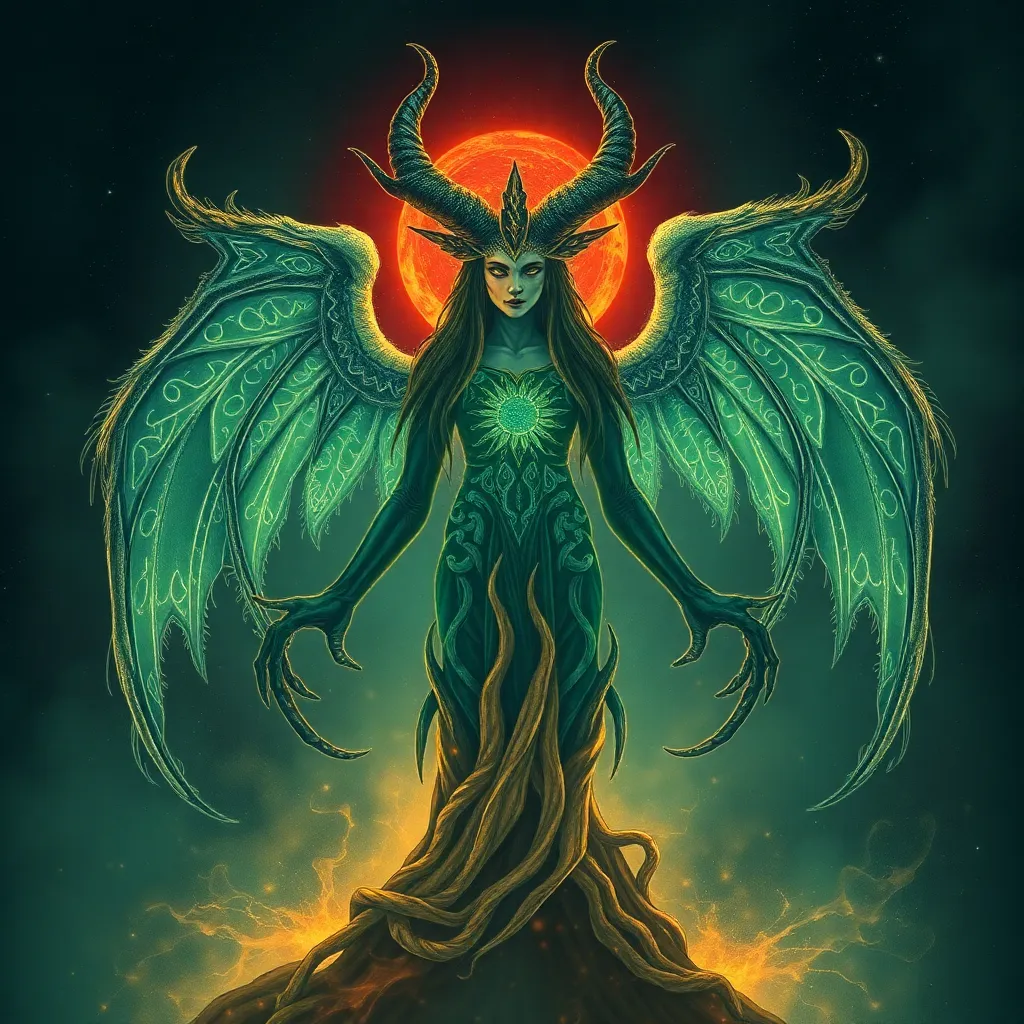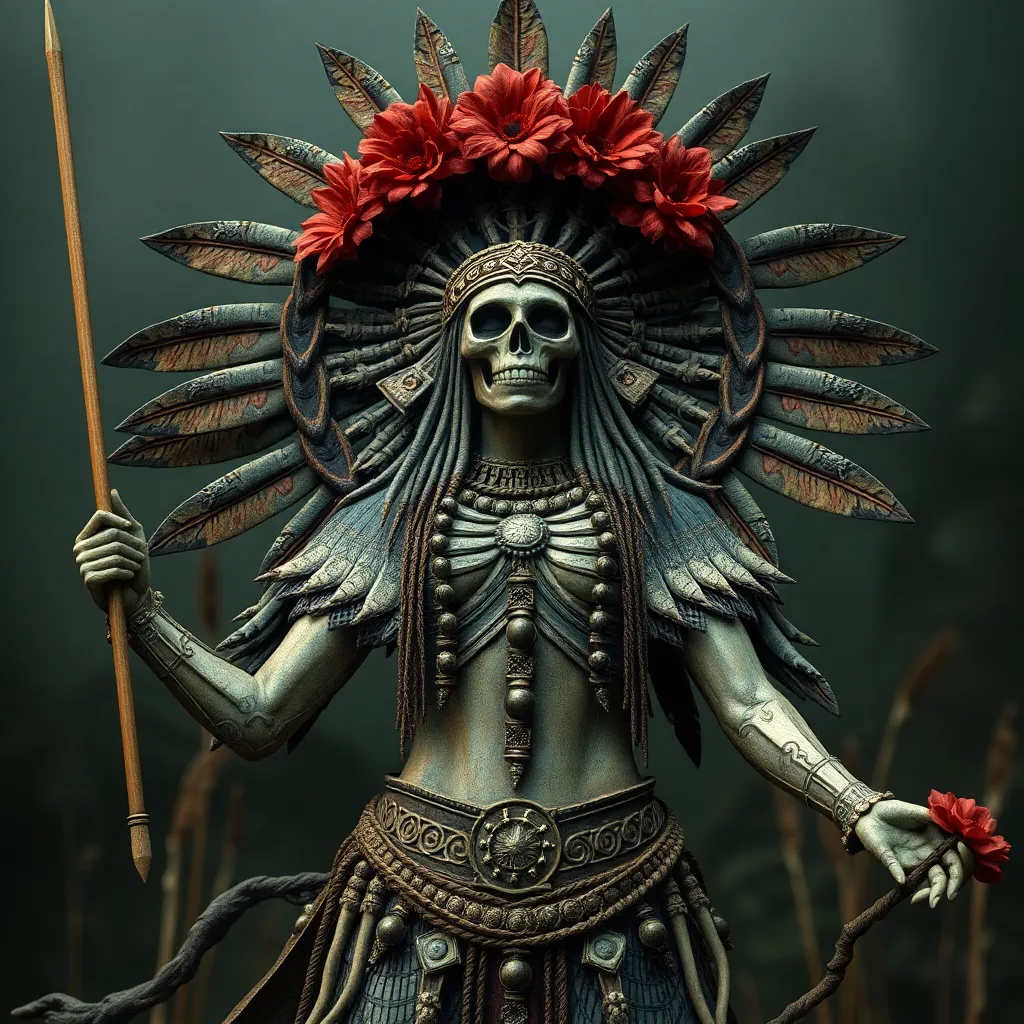The Empusa’s Echo in Celtic Mythology: Exploring the Demon’s Celtic Roots and Influences
I. Introduction
The Empusa, a figure rooted in ancient Greek mythology, represents a complex blend of demonology and folklore that has fascinated scholars and enthusiasts alike. Described as a shape-shifting entity often associated with seduction and malevolence, the Empusa serves as an intriguing case study for examining the cross-cultural influences in mythological narratives. In particular, Celtic mythology, rich with its own pantheon of deities, spirits, and demons, provides a fertile ground for understanding the Empusa’s characteristics and her potential impact on Celtic demonology.
This article aims to explore the Empusa’s origins, characteristics, and significance within the context of Celtic mythology. Through a detailed examination of historical background, comparative analysis, and cultural exchanges, we will uncover the layers of meaning that the Empusa holds in both Greek and Celtic traditions.
II. Defining the Empusa: Origins and Characteristics
A. Historical background of the Empusa in ancient texts
The concept of the Empusa originates from ancient Greek literature, particularly in the works of Herodotus and later mythological texts. Herodotus describes the Empusa as a demon that could transform into various forms, often taking the guise of beautiful women to lure men into traps. This shapeshifting ability is central to her character, reinforcing her role as a seductress and a source of danger.
B. Description of the Empusa’s traits and behavior
The Empusa is characterized by her:
- Shapeshifting abilities
- Feminine allure and seduction
- Malevolent nature, often leading to the demise of her victims
Her behavior often includes stalking or preying upon unsuspecting individuals, particularly men, which connects her to themes of femininity intertwined with danger and monstrosity.
C. Connections to other mythological demons and entities
The Empusa shares traits with several other mythological entities, including the Lamia and the Strix, both of which embody similar themes of seduction and danger. These connections highlight a broader archetype of female demons in various mythologies, emphasizing the universal nature of such figures across cultures.
III. The Celtic Context: Deities and Spirits
A. Overview of Celtic mythology and its pantheon
Celtic mythology is rich and varied, featuring a wide array of deities, heroes, and spirits. The Celts revered a multitude of gods and goddesses, each representing different aspects of nature, war, and life. Figures such as the Morrigan, a goddess associated with fate and war, and Banshees, spirits believed to herald death, exemplify the depth of Celtic spiritual beliefs.
B. Spirits and demons in Celtic folklore
Celtic folklore is rife with supernatural beings, including:
- Fairies: Enigmatic creatures often associated with nature and mischief.
- Banshees: Female spirits whose wails signal impending death.
- Selkies: Shape-shifting beings that can transform from seals to humans.
These entities, like the Empusa, often embody dual natures—both alluring and dangerous.
C. Comparative analysis with the Empusa’s characteristics
When comparing the Empusa to Celtic spirits, we see parallels in their:
- Shapeshifting abilities
- Feminine forms used to entice or trap
- Connections to themes of death and danger
This comparative analysis underscores the shared motifs in mythology and reinforces the notion that the Empusa may have influenced or mirrored similar Celtic figures.
IV. The Influence of the Empusa on Celtic Demonology
A. The transmission of ideas between cultures
The ancient world was characterized by cultural exchanges, particularly between Greek and Celtic tribes. Trade, conquest, and migration facilitated the flow of ideas, including mythological concepts. The Empusa, as a demon from Greek tradition, may have found resonance in Celtic beliefs through these interactions.
B. Specific Celtic figures influenced by the Empusa
Several Celtic figures may exhibit traits reminiscent of the Empusa, such as:
- The Morrigan: Often associated with war, death, and fate, she can also transform and manipulate appearances.
- Succubus-like entities: Various legends feature female spirits that seduce and harm men, echoing the Empusa’s narrative.
C. Cultural exchanges between ancient Greece and Celtic tribes
Archaeological evidence suggests that as Greek culture spread, it encountered Celtic societies, leading to potential adaptations of mythological themes. This cultural exchange likely contributed to the evolution of demonology in both traditions.
V. The Role of Gender in the Empusa’s Narrative
A. Examination of femininity and monstrosity in mythology
The Empusa’s characterization as a female demon raises important questions about femininity and monstrosity. In many myths, female figures embody both nurturing and destructive qualities, often reflecting societal views on women. The Empusa’s seductive nature highlights the duality of feminine power—capable of allure and destruction.
B. Gendered perspectives in Celtic lore
Celtic mythology also features complex portrayals of women, where they can be both revered and feared. Female deities and spirits often navigate the realms of life and death, mirroring the Empusa’s role as a seductress and a source of danger.
C. The implications of the Empusa’s portrayal as a female demon
The Empusa’s portrayal challenges traditional gender roles, presenting a powerful figure that subverts expectations. This complexity can encourage a reevaluation of feminine representations in mythology, advocating for a broader understanding of women’s roles in cultural narratives.
VI. Folklore and Legends: The Empusa’s Presence in Celtic Stories
A. Analysis of specific Celtic tales featuring demon-like figures
Numerous Celtic tales feature demon-like figures that share thematic elements with the Empusa. For example, stories of the Banshee often highlight her role as a harbinger of death, paralleling the Empusa’s association with malevolence.
B. The thematic parallels between these tales and the Empusa’s narrative
Both the Empusa and Celtic demon-like figures often embody themes of:
- Transformation and shapeshifting
- Female seduction leading to danger
- Supernatural warnings or omens
C. The role of the Empusa within the larger framework of Celtic storytelling
The Empusa, while primarily a Greek figure, can be woven into the fabric of Celtic storytelling. Her narrative can be seen as a reflection of broader themes present in Celtic folklore, enriching the understanding of both traditions.
VII. Modern Interpretations and Cultural Resonance
A. The Empusa in contemporary literature and art
In recent years, the Empusa has reemerged in contemporary literature and art, often depicted as a symbol of feminine power and danger. Writers and artists draw upon her myth to explore themes of seduction, monstrosity, and the complexities of female identity.
B. The revival of interest in Celtic mythology and its demons
As interest in Celtic mythology grows, so too does the exploration of its demons and spirits. Modern retellings and adaptations have revitalized these figures, enabling new interpretations and significance.
C. The impact on modern pop culture and media representations
The Empusa and similar figures have found their way into popular culture, appearing in novels, films, and television shows. Their portrayal often emphasizes the dual nature of femininity, making them relevant in discussions about gender and power in contemporary society.
VIII. Conclusion
The Empusa, with her complex origins and characteristics, serves as a fascinating intersection between Greek and Celtic mythologies. As we have explored, her traits resonate with various figures in Celtic lore, showcasing the interconnectedness of mythological narratives across cultures. The themes of femininity, danger, and transformation that the Empusa embodies continue to hold significance in both ancient and modern contexts.
In closing, the enduring legacy of the Empusa highlights the rich tapestry of mythology, where cultural exchanges and shared themes create a dynamic interplay of ideas. As we reflect on her story, we



